If you spend your winters or even a few weeks on vacation in a warmer climate, you might be preparing for your departure sometime soon. But before you leave to enjoy the sunshine and warmth, take care to prepare the home you’re leaving behind.
Here are eight destructive things you don’t want to find when you return home. Follow these precautions to help you avoid the damage they could bring while you’re away.
1. A New Colony of Bats (and Their Guano)
According to the National Pest Management Association, all species of bats prefer the warm, dark protection of indoor attics and interior roof eaves to cold caves and tree cavities, especially during winter. And they can do significant damage by making exterior holes even bigger and excreting guano onto attic rafters (often just above your ceiling). Once they get in, it can be very difficult to get them out: about a dozen U.S. bat species are on the endangered species list and are protected by federal laws, so preventing bats from roosting in your home is your best option.
Since bats are able to squeeze through very narrow cracks and slits, a visual inspection of all roof eaves, roof pitch changes, cornices, fascia, any other roof venting and the chimney must be done just before you leave the house for an extended period of time. Seal any small cracks or open slits with caulk and have a professional apply permanent screening or metal mesh around the interior of eaves and vents and over the tops of chimneys.
2. Insects Lined Up for Dinner
Ants, cockroaches and moths will be first to notice if you leave any food or water sources, no matter how small, anywhere in the house. And absolutely no one (save for the most dedicated entomologists) wants to come back to find a mountain of ants living under plant pots or cockroaches darting into dark crevices underneath sinks.
To help prevent an insect infestation, completely wash and dry all kitchen surfaces. The insides and outsides of cabinets, under and behind the refrigerator and the stove, and even the kitchen table and chairs should be cleaned thoroughly to remove all sources of food. Wipe or mop up any standing water.
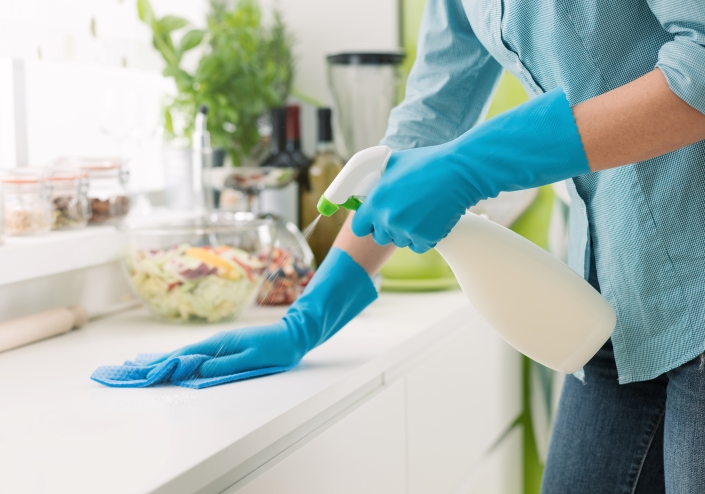
During the colder months, some bugs will try to invade your home, looking for protection from the elements. Don’t make this easy for them. Use caulk to seal all window frames and sills completely, and inspect and replace weatherstripping and door sweeps as necessary.
3. Behind-the-Scenes Rodents
Rats and mice also come for food, but can cause much more damage because they tend to nest inside the walls of your home. Imagine returning from your sojourn to find droppings and gnaw marks all over your home, and being greeted by the smell of dead rodents in your wall.
In addition to cleaning the kitchen, search for food in unlikely places, such as under and in-between bed frames, mattresses and couch cushions, where candy wrappers, crumbs and stashed food can attract these pests. Also inspect the exterior of the house for any cracks or holes in the foundation, siding or windows where mice or rats can crawl in. Remove any overhanging tree limbs, as they may allow raccoons, roof rats and squirrels to take up residence in the attic insulation, damaging rafters and ceilings with their droppings and gnawing.
Learn more: Does Your Insurance Cover Animal Damage?
4. A Tree on Your Roof
When closing up your house for the season, you can become so focused on the inside that you forget about the things that can cause major damage to the outside in the event of a wind storm or heavy snow.
Take the time to walk the entire exterior perimeter of your house, looking up at any surrounding trees as you go. Are large limbs overhanging or touching your roof, siding or windows? If so, not only are you inviting pests that live in the trees to climb aboard, you are also risking that a limb will drop onto or swing into your house during severe weather. Before you leave for your trip, have a professional remove trees or branches that could easily fall on your home or power lines.

5. Frozen Pipe Slush
As part of the process of winterizing your home, make sure you don’t leave the main water valve on in the house. You may return to a moldy, mildewy mess of damaged drywall and ruined possessions if a water pipe or water heater freezes then leaks or bursts.
You’ll want to protect your home from this disaster by hiring a plumber twice a year: once to disconnect the water supply lines before you leave and again to reconnect everything when you return. When disconnecting the main water valve and supply lines, the plumber should also completely drain the water heater. You’ll also want to leave your faucets open and flush the toilets to remove as much water possible from the pipes.
6. Refrigerator Meltdown
A smelly, slimy, moldy, filthy refrigerator full of rotten food is what you’ll come home to if you leave the fridge stocked and running. And if the power goes out while you’re away, even if you clean out the fridge before you go, you’ll be in for a real mess.
To avoid destroying your fridge—and surrounding walls and floor—remove everything and completely clean out the fridge with a sponge and a dry towel, leaving the door wedged slightly open. Also, drain the ice maker water line and unplug the refrigerator to avoid any leaks or mold buildup, which could cause considerable damage to the ceiling, the wall the water line runs along and the floor underneath the refrigerator.
7. Dead Car Syndrome
This can happen when the battery drains, fluids freeze or dry up, or critters take up residence under the hood or in the tail pipe of your stored vehicle.
You can purchase and connect a battery maintainer to your car’s battery before you leave to avoid a dead battery when you return. The Department of Motor Vehicles also advises adding a fuel stabilizer to prevent damage to the engine and fuel line. Seal the tail pipe to keep critters from crawling in (and include a large, visual reminder to remove the plug before driving on your return).
Tip: Before you head off to your warm-weather wonderland, check in with your auto insurer. You might need to update your address while you’re away so that you don’t miss any important information from your insurance company.
8. Burglarizing Bad Guys
An empty house can be a huge temptation for would-be burglars. Deter them by making the house look lived-in. Leave the power on and set up timers to turn on lamps, radios or televisions. Or, set up smart home features that enable you to control your alarm system, heat, lights and other devices remotely using your smartphone. And check that all door locks, deadbolts and strike plates are tight.
It’s also a good idea to ask your nosiest most trusted neighbors to call if anything ever looks suspicious. Ask those same neighbors to collect any flyers that build up on your property and to walk through your driveway or up your steps after it snows to make the home look occupied.
Happy Travels!
Take our advice by heeding all of these precautions. The only surprise you’ll want to find when returning to your house is how glad you are to be home.
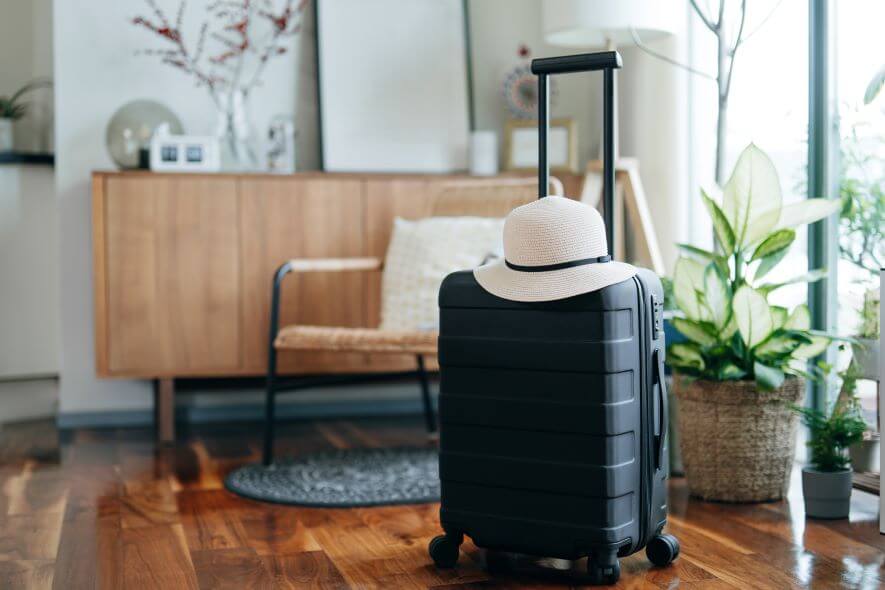


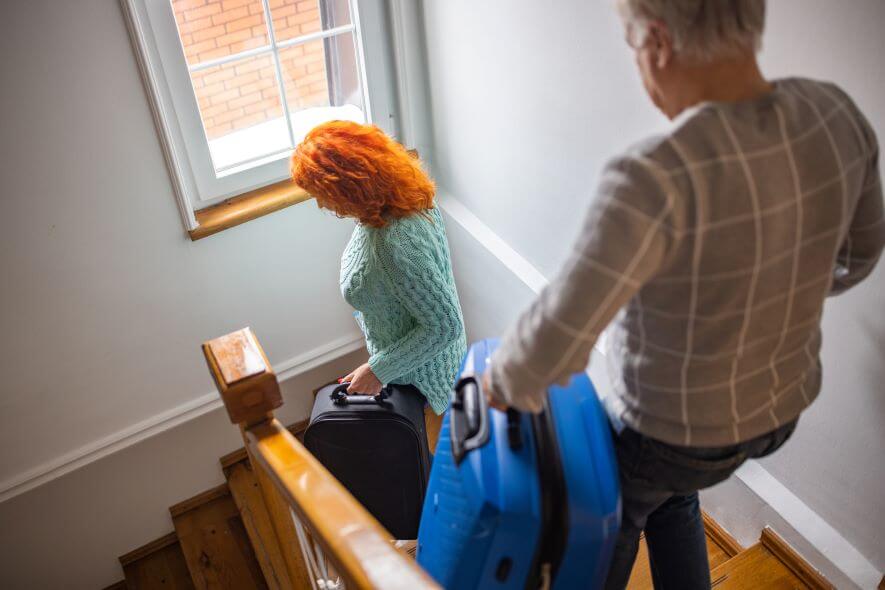

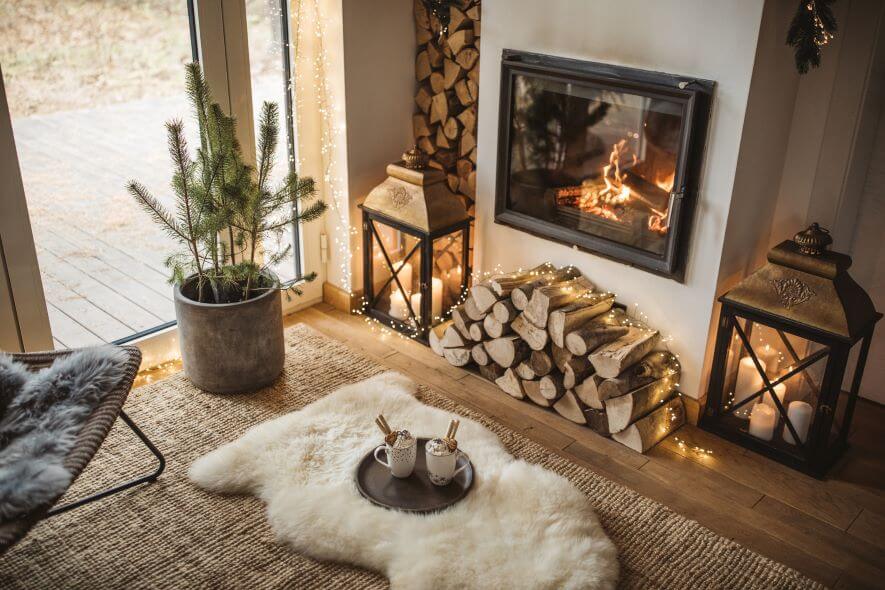
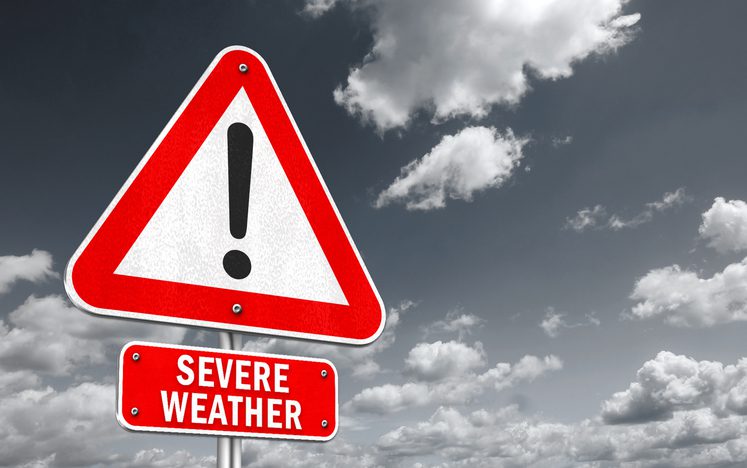

If your Police Dept has volunteers (VIPS), ask if they do Vacation House Checks. You would fill out a request giving the dates you will be gone, details about who is allowed on the property ( lawn care, housekeepers, etc) and a local emergency contact person. The VIPS come to the house and check doors, windows, etc. on a regular basis while you are gone.
Before leaving for even a week, put new batteries in your thermostat to keep your furnace and/or air conditioner running smoothly.
We have sliding windows, and we keep a dowel or stick handy and put in the empty
tray to limit how far the window could be opened. We do the same with our sliding glass doors. Some burglars don’t like to break the glass to get in. Also, we let our neighbors know to watch and bring in the mail. We live in an area where flop houses become drug havens, but nothing bad has happened.
One neighbor was away for an extended stay, and a fire broke out. I saw the flames from my back yard, and neighbors closer to the house notified 911. It’s good to know your neighbors and be on watch.
I would just add one more thing to this list and that is avoid alerting the public by your social media posts that you are not home. Try to post your photos and videos, etc. upon your return to keep the fact that your house is not occupied out of the public eye
I would add stopping delivery of mail (have the post office hold it for you until you return) and also the newspaper.
The Hartford is such a terrific company. They always have good advice and low rates.
Notify the police about how long you will be gone. They’ll keep an extra eye out on your place. Also tell the post office. Postal carriers know a lot about you.
A great list!
And great reasons why a trustworthy housesitter (my younger relatives, in my own case) or caretaker can be a smart investment. Peace of mind! I had a serious water leak inside my previous home a few years ago. Thankfully, I had someone who was onsite, able to be there when ServPro and my insurance agent came for repairs and review!
1) water heater to vacation mode.
2) water to the washing machine turned off.
3) garage door to vacation mode.
I am surprised that the experts did not suggest taking the negative lead off the battery for periods of up to 6 months storage. A battery maintainer is great if the plug-in outlet is not an GFI type, but if it is, the maintainer might not start up again after a power outage, This happened to us and our refrigerator went out after a power outage and we learned the hard-way not to depend on GFI outlets that need to be manually reactivated.
Very well done !
Actually mine is a question, not a comment. Referencing the falling tree limbs item, whose insurance pays for repairs if a limb from a tree in my yard falls and damages a neighbor’s home?
I enjoyed the above article. One question about the car. Here we have a
problem with rodents taking up residence in the engine compartment. Do
you have a suggestion for this? I understand they can do a lot of damage?
Angus
Hi Angus, we have a section at the bottom of this article around pests and auto insurance: https://extramile.thehartford.com/home/home-insurance-animal-damage/